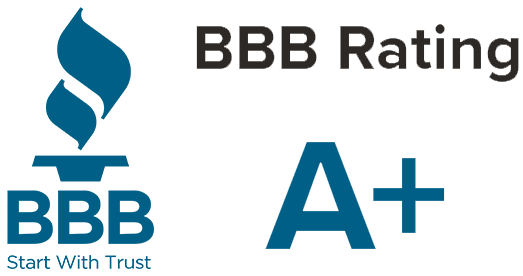Understanding Specialized Government Contract Accounting
By TED ROSE, ROSE FINANCIAL SOLUTIONS
Government contract accounting is a specialized field requiring adherence to strict standards and regulations. Whether you're new to government contracting or have experience, understanding the unique requirements is crucial for maintaining compliance and ensuring the success of your contracts. This guide will explore the importance of specialized accounting, the types of government contracts, and the specific considerations for accounting in this field.

Importance of Specialized Accounting for Government Contracts
Government contractors must follow specific rules and procedures to maintain their contracts and receive reimbursement. Specialized accounting systems and procedures are important because of the audit requirements, specific forms, and procedural demands imposed by the government. Outsourced accounting services can help meet these requirements and achieve success in government contracting.
Accurate and compliant accounting ensures that:
- Contracts remain in good standing: Non-compliance can result in penalties, contract termination, or in egregious situations, debarment from future government contracts.
- Costs are reimbursed: Proper documentation and adherence to regulatory and contractual guidelines are necessary for cost reimbursement.
- Future contracts are secured: A history of compliance and good financial practices enhances a company’s rating and credibility.
Types of Government Contracts
The type of contract you have with the government depends on the goods or services you provide. Here are the most common types:
• Fixed-Price Contracts: These award a specific price for services. They may include price adjustments based on the consumer price index and incentives or award fees for desirable performance. They offer predictability but require accurate cost estimation.
• Time and Materials Contracts: These pay contractors for the time and materials used during a funded project. They provide flexibility but need rigorous tracking of hours and materials.
• Cost-Reimbursement Contracts: These reimburse businesses for allowable costs plus an additional amount for fixed fees, incentive fees, or award fees. They are beneficial for projects with uncertain costs but require meticulous record-keeping.
Accounting System Adequacy
All Federal contracts require compliance with accounting principles set forth by the Financial Accounting Standards Board (FASB).
What Sets Government Contract Accounting Apart
Businesses contracting with the federal government must adhere to specific accounting standards, including GAAP (Generally Accepted Accounting Principles) and additional standards by the FASB. These requirements often necessitate an accounting expert or CFO specializing in government contract accounting. Key requirements include:
- Compliance with FAR (Federal Acquisition Regulation) Part 31: This part outlines the cost principles for contracts with the federal government.
- Cost Accounting Standards (CAS): These standards govern the measurement, assignment, and allocation of costs.
- DCAA-compliant accounting and timekeeping systems: Ensures that all accounting and timekeeping meet the standards of the Defense Contract Audit Agency.
- Cost allocation and approved indirect cost rates: Proper allocation of direct and indirect costs is essential for compliance and cost recovery.
- Billing and invoicing using SF forms (Standard Forms): Required for standardized reporting and billing.
Key Differences Between Government Contract Accounting and Commercial Accounting
Government contract accounting differs significantly from commercial accounting. Some key differences include:
• Robust Internal Controls: Necessary to comply with federal audit agency standards.
• Compliance with FAR, CAS: Often more stringent than commercial standards.
• Federal Invoice Standards: Invoices must comply with federal standards and use specific forms.
• Timekeeping: Required for all employees, ensuring accurate labor cost allocation.
• Cost Segregation: Direct and indirect costs must be clearly segregated, which is critical for accurate billing and compliance. It is also critical to segregate costs that are “unallowable”.
Get started with ROSE®
Looking for a simpler way to manage your finance, accounting, and tax needs?
Experience the difference that our expert professionals and leading-technology can make.
Specific Considerations for Government Contract Accounting
Entering the world of government contracting can be challenging due to strict compliance and documentation requirements. Here are some specific considerations:
Compliance with FAR Part 31: This specifies which costs can be charged to government contracts and which are not allowed. Some non-allowable costs include:
o Alcohol and entertainment costs
o First-class plane tickets
o Interest on debts
o Legal fees
o Personal expenses
o Travel costs exceeding federal per diem rates
o Excessive compensation
Cost-Reimbursable Contracts (CPFF)
In cost-reimbursable contracts, costs can only be reimbursed if they meet specific criteria, including:
• Reasonableness: Costs must be justifiable.
• Allocability: Costs must be directly associated with the contract.
• Compliance with CAS: Must adhere to standards set by the CAS board.
Ordinary business accounting won't suffice for documenting reimbursable costs under government contracts, making specialized accounting crucial. Accurate and contract-compliant accounting is essential for ensuring all allowable costs are reimbursed.
Unallowable Costs
Unallowable costs may be legitimate business expenses, but they are not reimbursable under government contracts. These include:
• Alcohol and entertainment expenses
• First-class air travel
• Debt collection costs and bad debts
• Legal judgments and fines
• Interest on loans or credit cards not part of the government contract
These costs may be tax-deductible but cannot be charged to government contracts.
Finance Charges
Finance charges, such as interest on loans or credit cards, are generally unallowable unless they are part of the government contract and meet specific criteria set forth in the Code of Federal Regulations (CFR). Financing costs for construction or capital asset purchases can be allowable, provided they comply with regulations.
Essential Business Systems for Government Contractors
Small government contracting businesses may use QuickBooks for record-keeping, but larger businesses need specialized systems like PROCAS, Unanet, or Deltek Costpoint. These systems help minimize compliance risks and support contract and operational requirements. PROCAS, Unanet, and Deltek Costpoint all have integrated Time and Expense systems that support compliance as well. QuickBooks as a standalone product does not include a compliant time tracking system. There are several adequate time tracking applications that can integrate into QuickBooks.
QuickBooks for Government Contractors
While QuickBooks can handle basic accounting needs, government contractors may require additional functionality to ensure compliance with federal requirements. QuickBooks can be supplemented with modules and add-ons specifically designed for government contracting.
Specialized Systems: PROCAS, Unanet, and Deltek
- PROCAS: This system is tailored for government contractors, offering features like DCAA-compliant timekeeping, expense reporting, and job cost accounting.
- Unanet: Provides project management, resource planning, and financials in one integrated system. It ensures compliance with DCAA and other government regulations.
- Deltek Costpoint: Known for its comprehensive suite of solutions for project-based businesses, Deltek Costpoint offers robust accounting, project management, and compliance features tailored for government contractors.

How Rose Financial Solutions Can Help
ROSE® has extensive experience helping GovCon businesses establish and grow successful federal government contracting relationships. Their services include:
•Financial Management: Comprehensive management of financial operations to ensure accuracy and compliance.
•Outsourced CFO Services: Strategic financial guidance tailored to the needs of government contractors.
•Accounting and Transactions: Detailed management of accounting transactions to meet government standards.
•Tax and Regulatory Compliance: Ensuring compliance with all tax and regulatory requirements, including FAR and CAS.
•Easby: Easby is a system of engagement that integrates with the above accounting systems. It manages the workflows for payables, payments, credit card expenses, billing, cash receipts, payroll, financial reporting, and tax filings while accumulating and storing supporting documents and management approvals for audit and compliance purposes.
ROSE’s specialized services ensure that your business maintains accurate financial records, complies with regulations while providing you with the financial information you need to make informed financial decisions. By leveraging their expertise across any or all functions, you can focus on your core mission while they handle the financial complexities.
For more information on how ROSE can assist your business, visit our
Government Contracting Services page.

Ted Rose
In 1994 Ted Rose founded Rose Financial Solutions (ROSE), the Premier U.S. Based Finance and Accounting Outsourcing Firm. In 2010, the Blackbook of Outsourcing named ROSE the #1 FAO firm in the world based on client satisfaction. As the president and CEO of ROSE, he provides executives with financial clarity. Ted has also acted as the CFO for a number of growth companies and assisted with various rounds of financing and M&A transactions.
Share this article:
Visit Us On:




